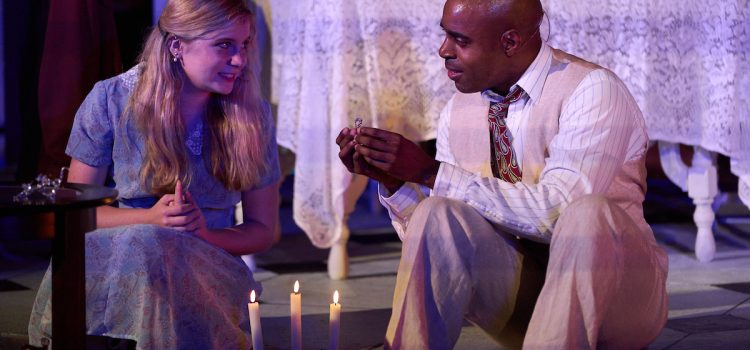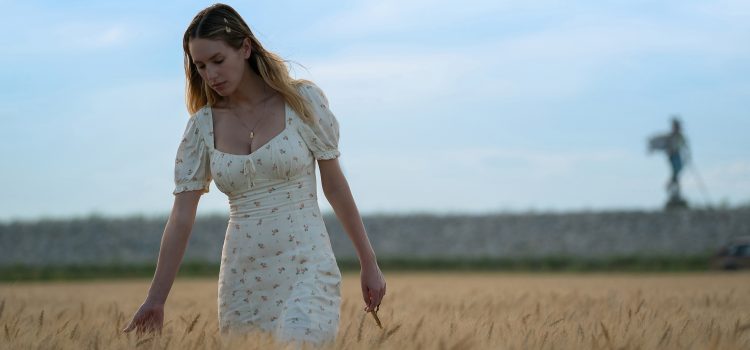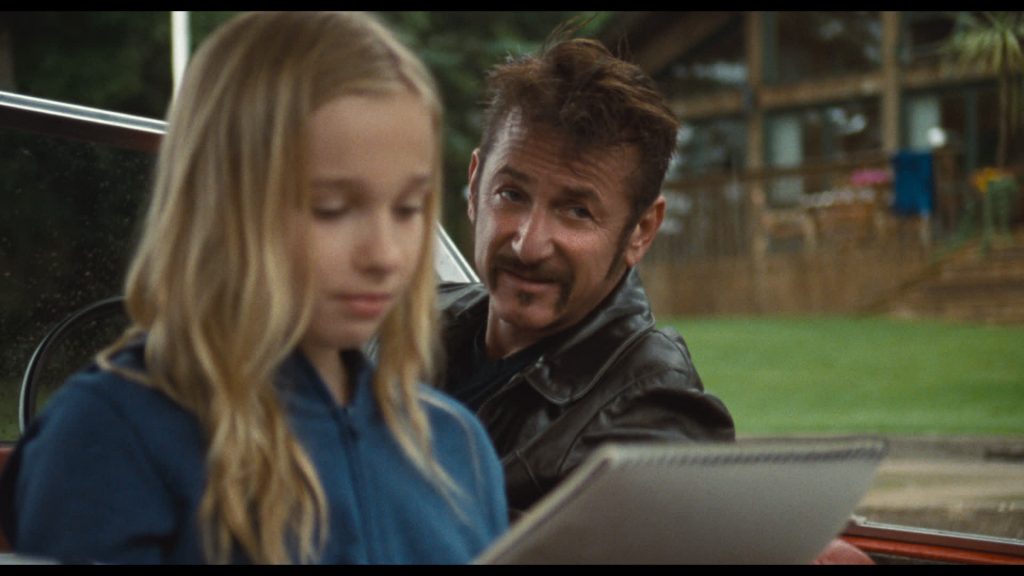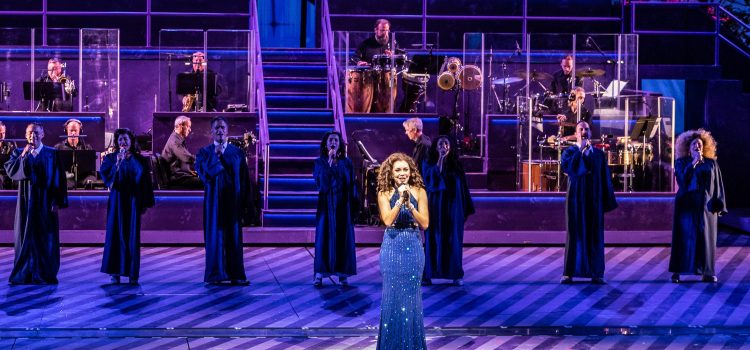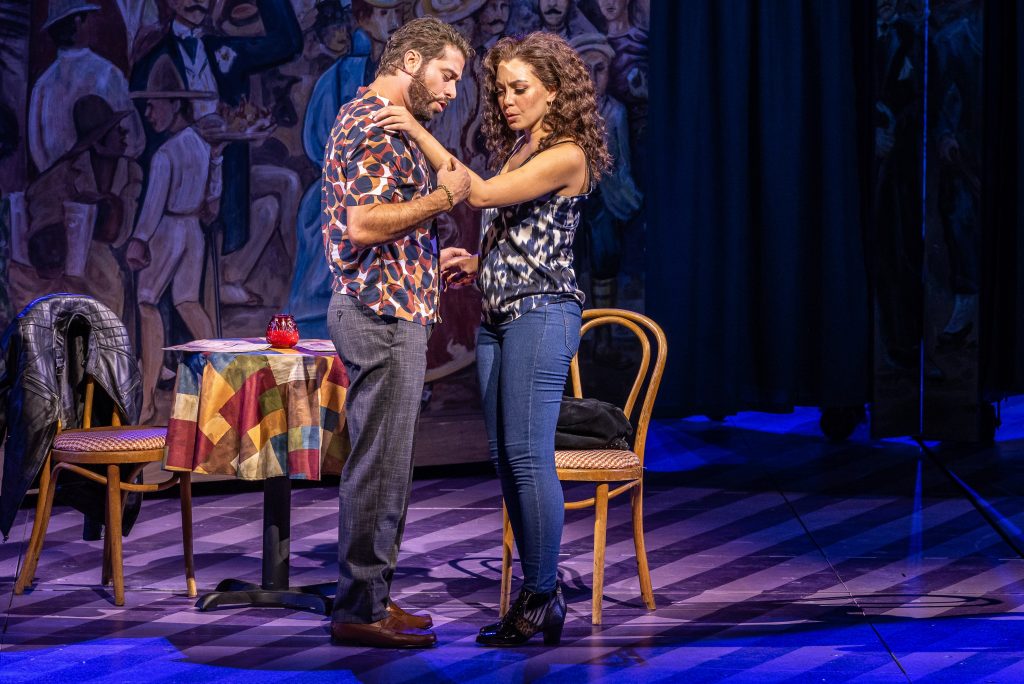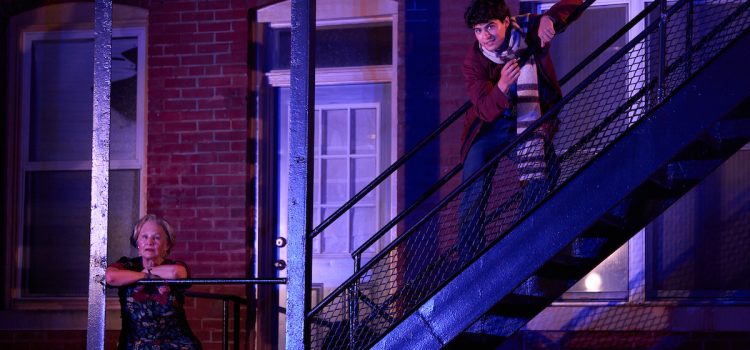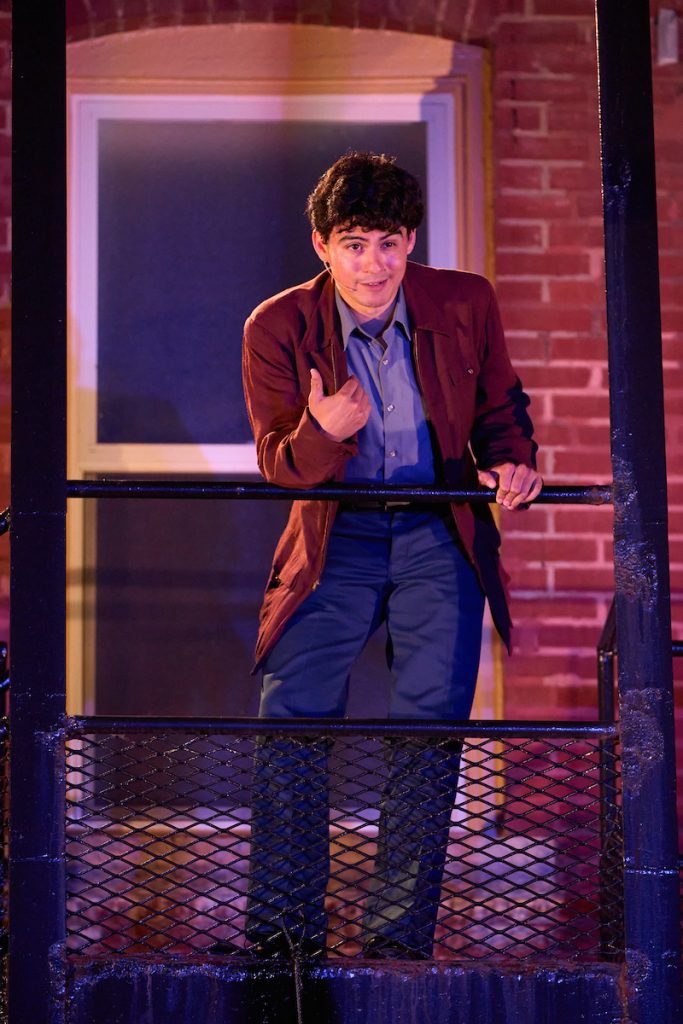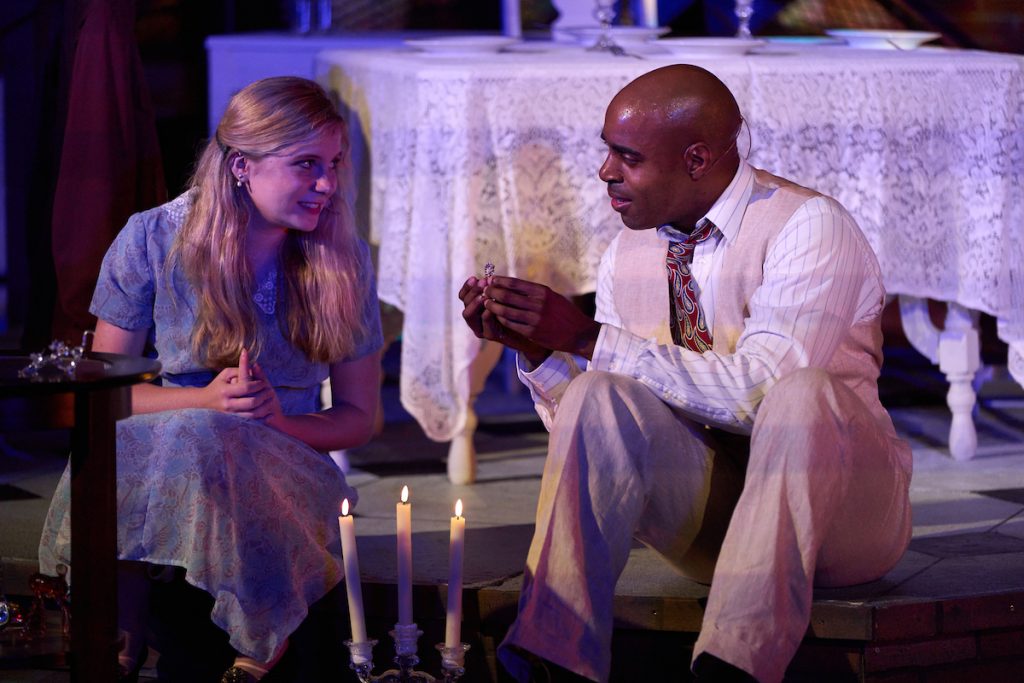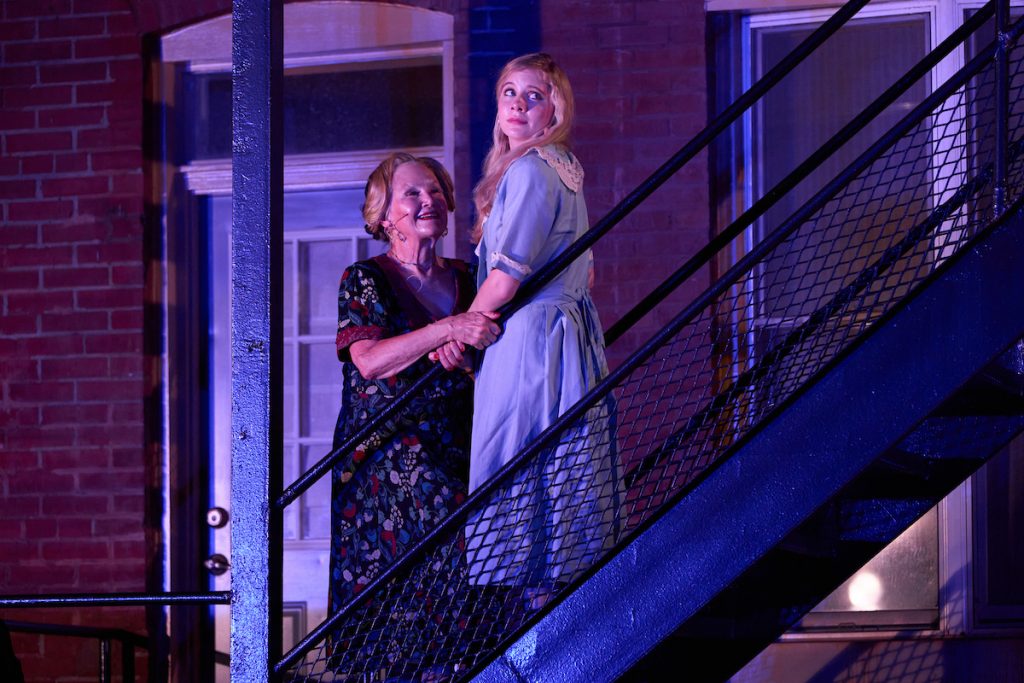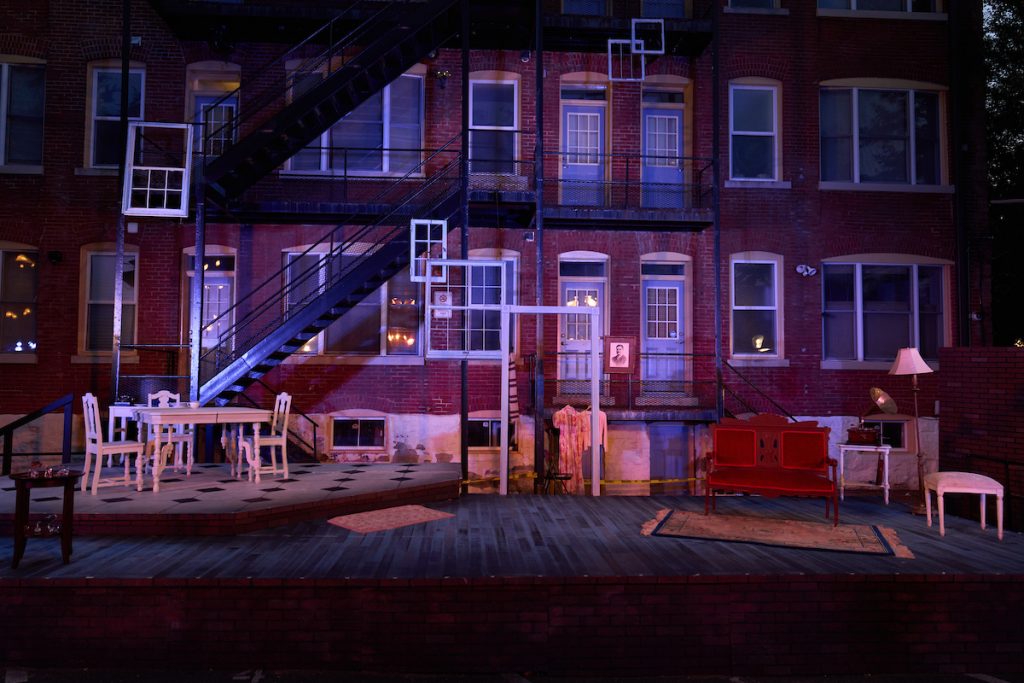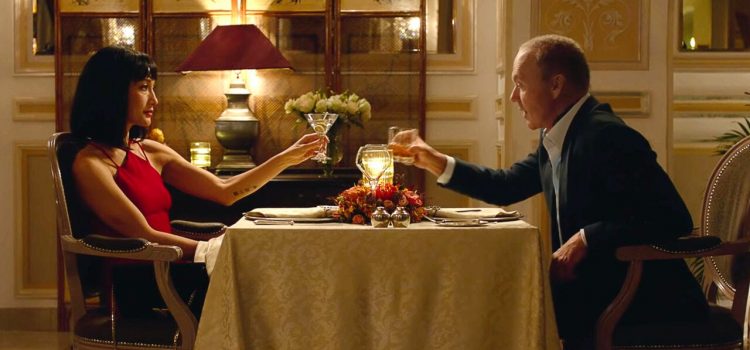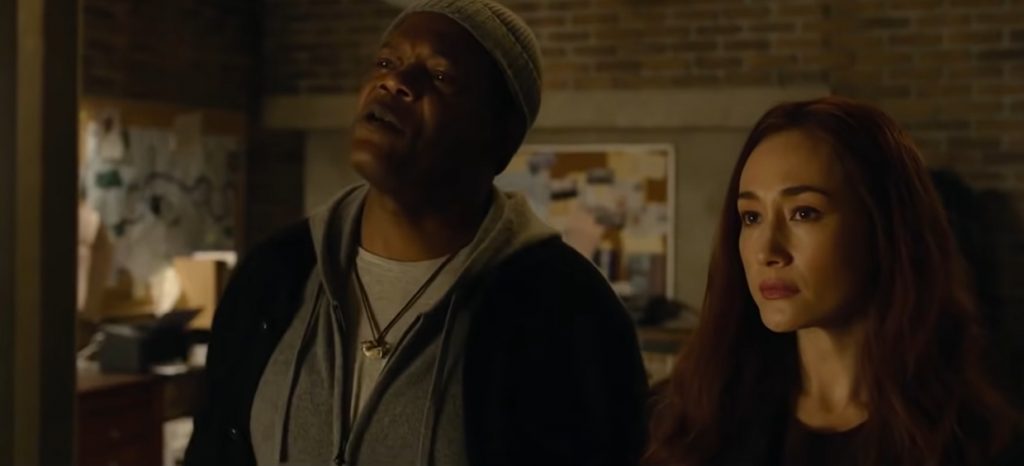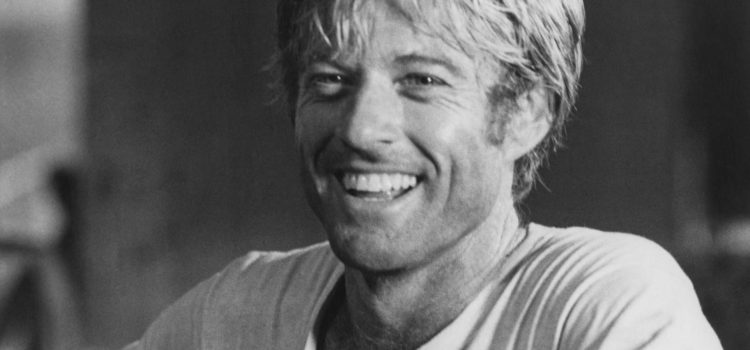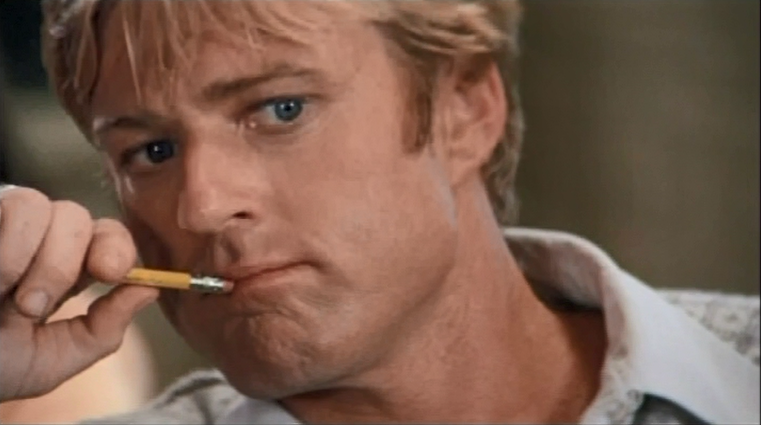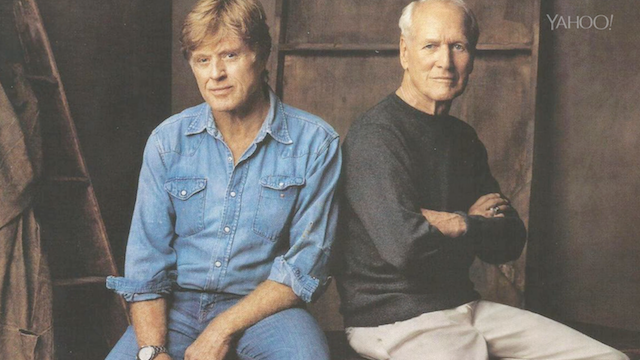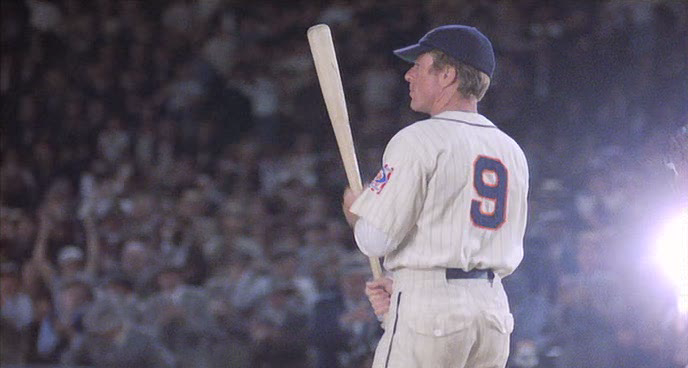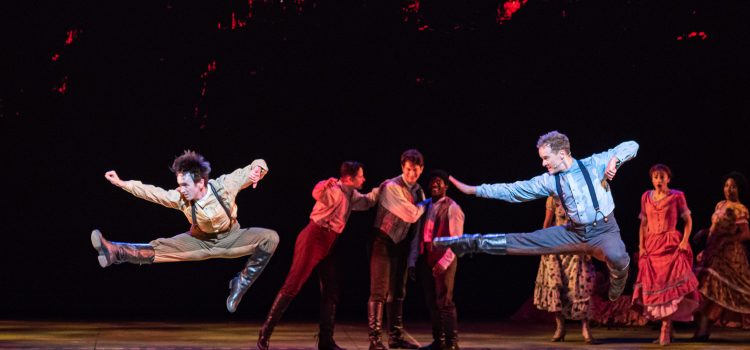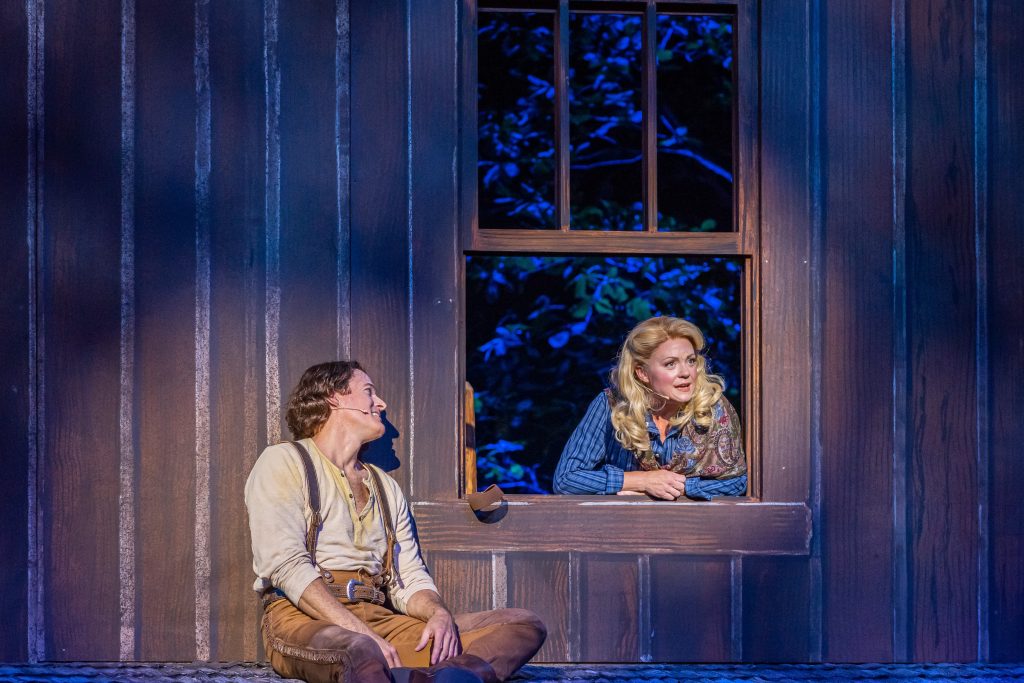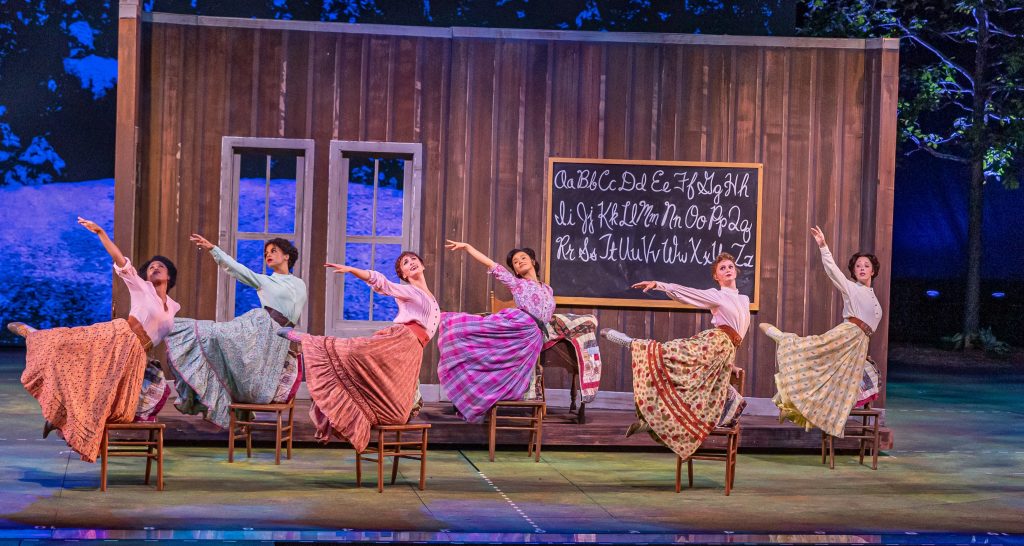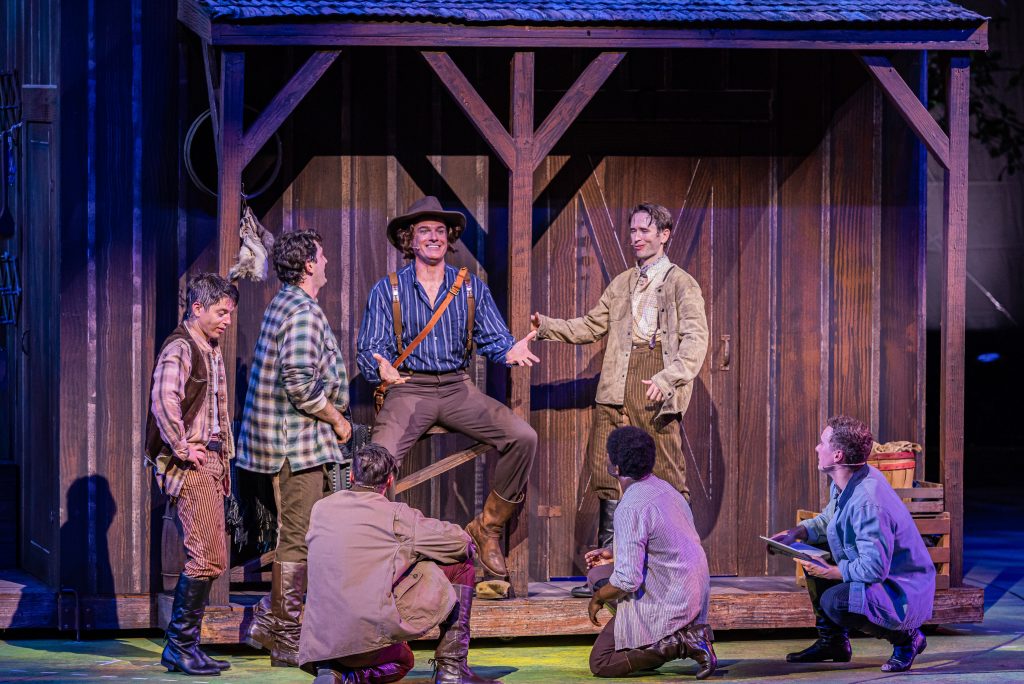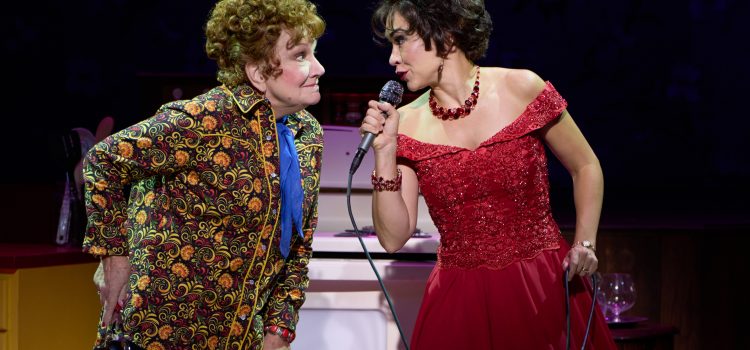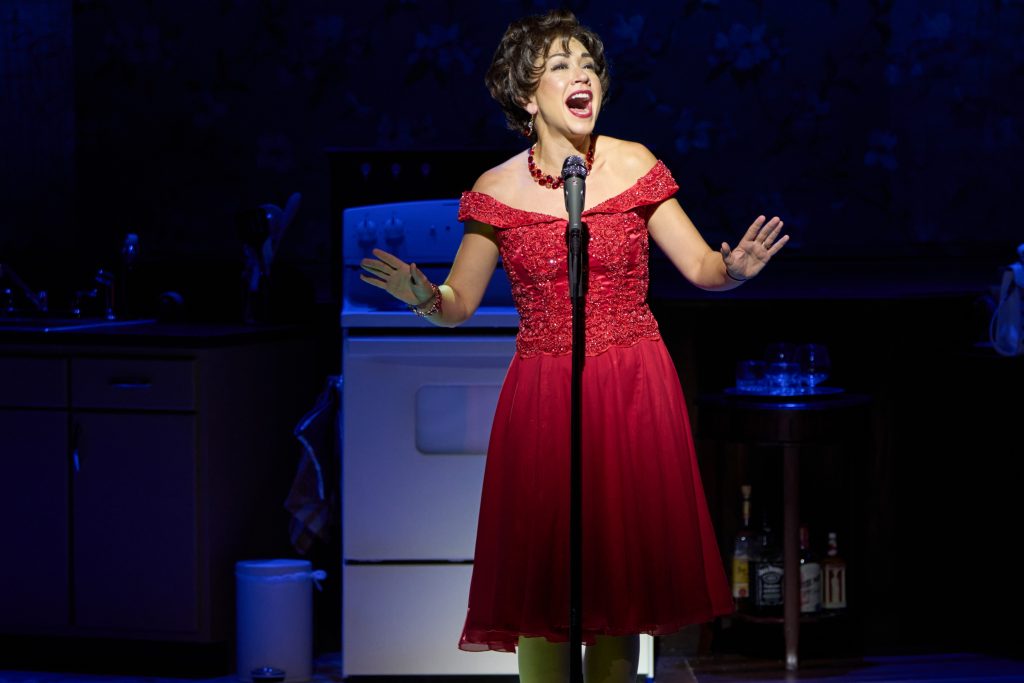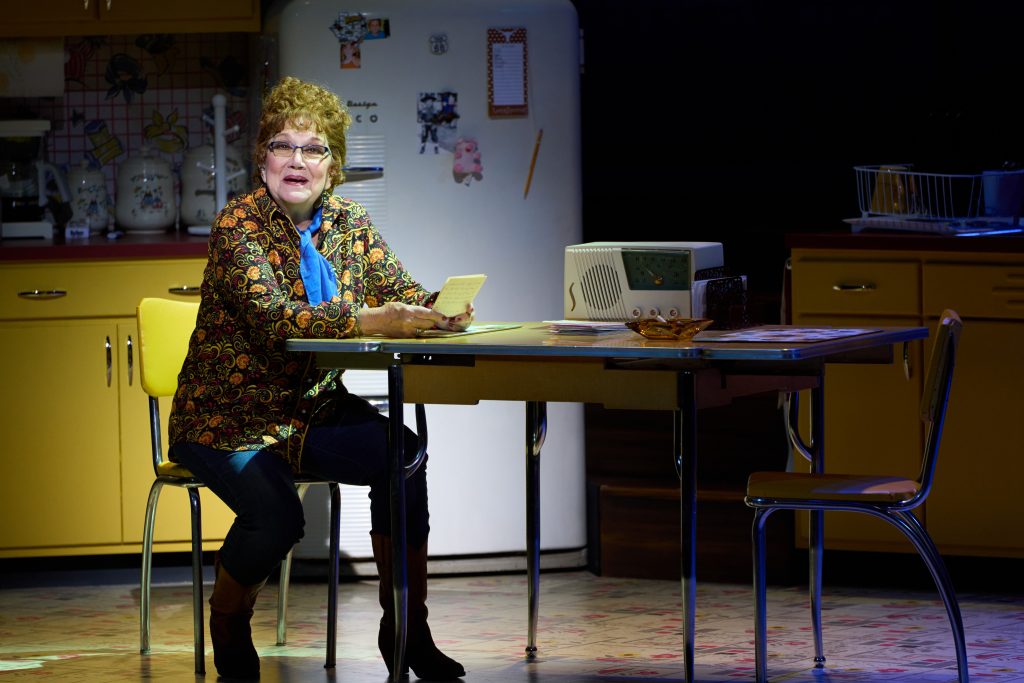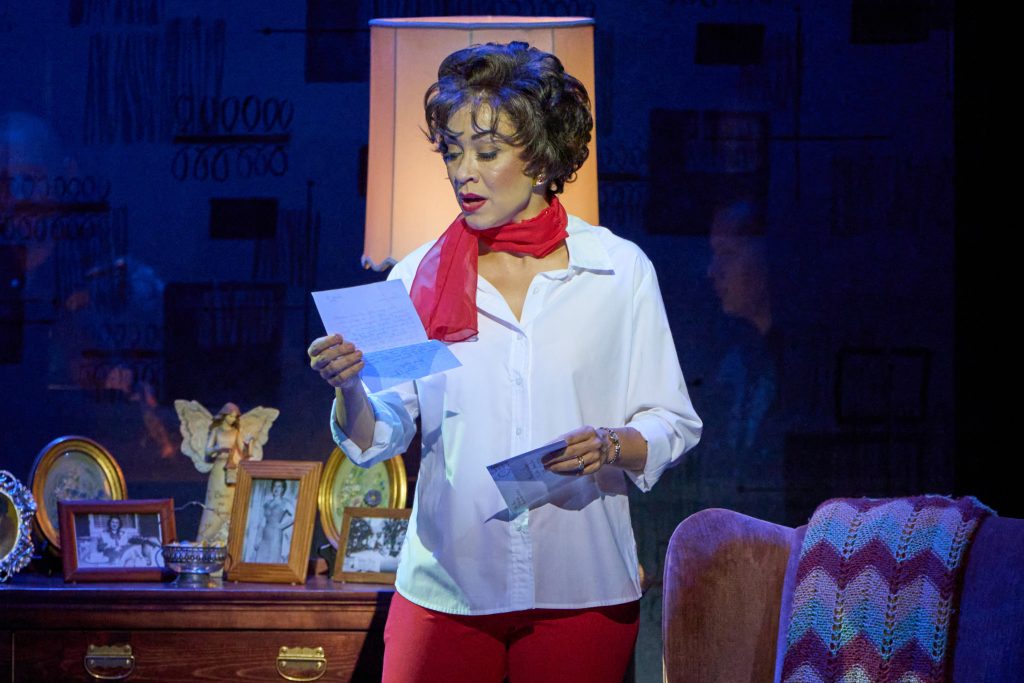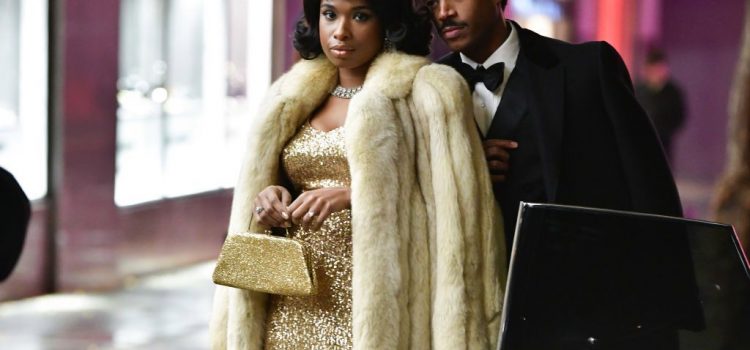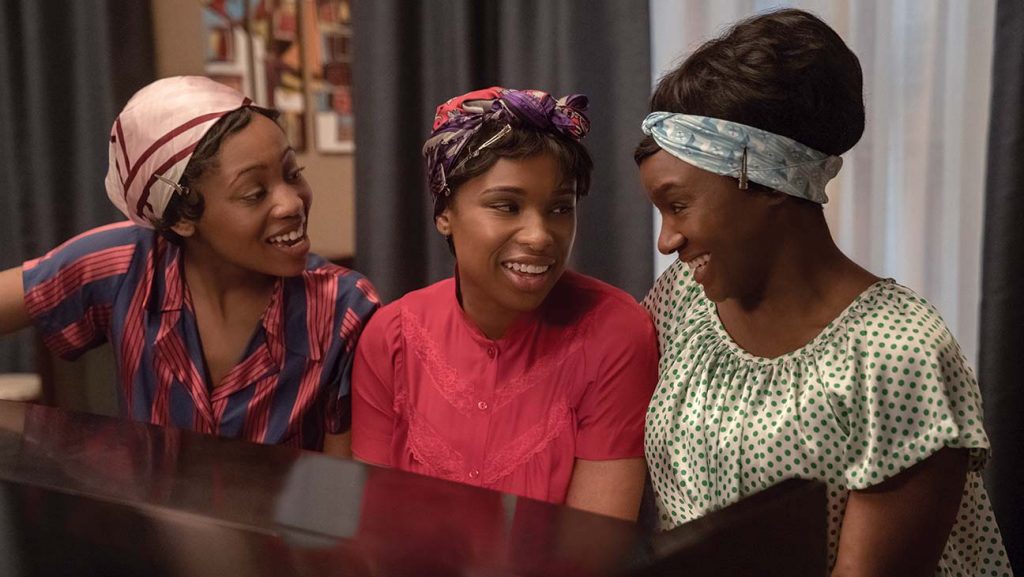By Lynn Venhaus
After not being on a stage since November 2019, Chauncy Thomas has made quite a comeback this summer – starring in two productions at the Illinois Shakespeare Festival in Bloomington, Ill., and as the Gentleman Caller Jim in “The Glass Menagerie” and the one-act “You Lied to Me About Centralia,” which was part of this year’s Tennessee Williams Festival St. Louis, all outdoors.
As he leaves to return to home in New York City, he will have left St. Louis better than when he arrived, to paraphrase his favorite quote.
Chauncy, a native of Peoria, Ill., landed in St. Louis when he attended Washington University in St. Louis, earning B.A. degrees in both drama and psychology.
He built a versatile and respected career in regional professional theatre before taking off for New York City nearly eight years ago, earning two St. Louis Theater Circle Award nominations for “Intimate Apparel” at New Jewish Theatre in 2017 and “Topdog/Underdog” at St. Louis Actors’ Studio in 2013.
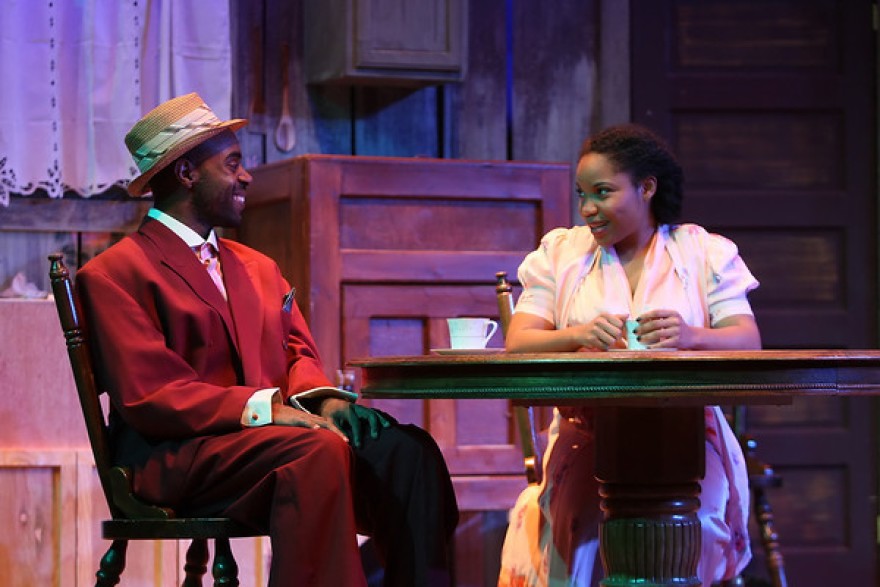
His resume includes “Clybourne Park” at the St. Louis Repertory Theatre, “The Piano Lesson” at the Black Repertory Theatre, the La Bute New Play Festival at the St. Louis Actors’ Studio and multiple productions at the St. Louis Shakespeare Festival.
Since 2014, he has returned here for productions, including “Dot” at the Black Rep and “The Winter’s Tale” at St. Louis Shakespeare Festival.
“St. Louis is still a place I call home. I still feel incredibly connected to the people there, and especially the theatre community,” he said.
During the pandemic in 2020, he decided to leave New York City for Iowa to stay with his brother and his family in mid-March.
“My twelve-year-old nephew let me use his bedroom, so it was two months of sleeping under Spider-man sheets. In mid-May I trekked to Peoria to stay with my mother. My silver lining of the pandemic is getting to spend so much time with her,” he said.
“I lost all but one of my side jobs, so math tutoring was paying the bills. I got little theatre gigs here and there: zoom readings, workshops, etc. But I truly missed being on stage,” he said. “Most of my actor friends in New York either had to move or were significantly concerned with their finances, so I was still counting my blessings.”
He has worked on many Shakespeare productions and enjoys the challenge.
“I’ve been doing a decent amount of Shakespeare for a decade but last year, I think I figured out how I should approach the work. For the first eight years, I was trying to meet some standard of what I thought Shakespeare was. I’ve since learned I need to bring as much of myself and my racial identity to the work as I can. It’s what makes me unique. I love performing Shakespeare because it’s brilliant, but it also presents the challenge of making a 400-year-old stories relevant to a modern audience,” he said.
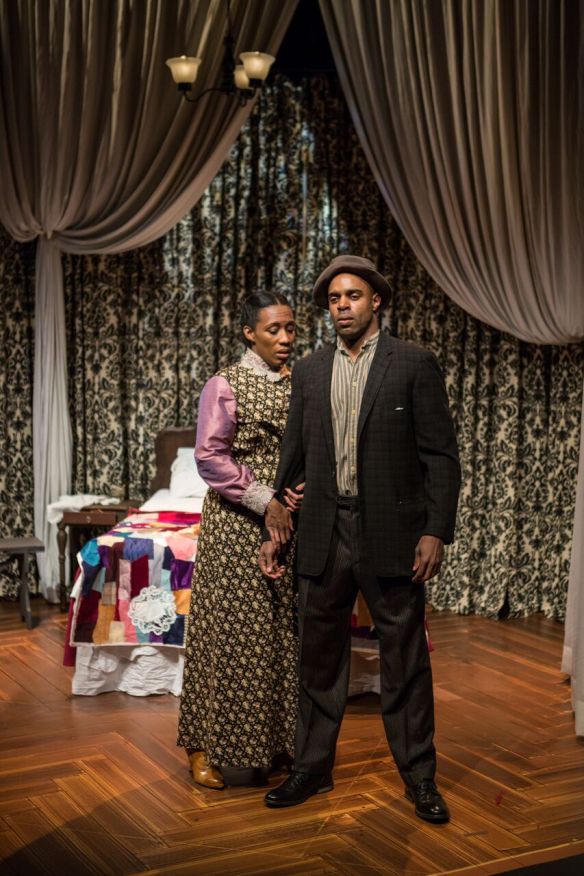
He has traveled to other theaters in the county, including the Alabama Shakespeare Festival and the Wellfleet Harbor Actors Theater in Massachusetts.
From his base in New York City, his credits include “Romeo and Juliet” at Lincoln Center Education, “Hamlet” at RIPT Theater Company, “A Raisin in the Sun” at Bay Street Theater, “Our Town” and the television show “Madam Secretary,” in which he played a secret service agent.
Last year, he wrote a one-act for the theatre season for the Performing Arts Department at Washington University, which was part of the live events cancelled due to the pandemic, but was performed as part of “Homecoming Voices,” four plays by alumni, in March.
His play “The Nicest White People that America Has Ever Produced,” featured a Black writer and a white director discussing race, power and artistic integrity in the film industry — a theoretical discourse that prompted real questions about friendship and ethics.
Doing Shakespeare and Williams in the same summer “has been a challenge,” but he is grateful to be working.
“It’s been crazy, but before that, it was nothing, a famine, so I’m trying to enjoy this feast,” he said. “I thought how in the world am I going to get all of this done, but after I had my mornings free, I worked on the line memorization and text analysis,” he said.
As for playing Jim in two different productions, he described it as “fascinating.”
Williams’ memory play of his family and their life in St. Louis features Jim as Tom’s friend from work who is invited to dinner at the Wingfield home to meet Tom’s sister Laura.
The Tennessee Williams Festival St. Louis, “The Moon and Beyond,” ran from Aug. 19 to 29, with its signature play, the one-act and multiple presentations by scholars and a tribute with the cast.
Playwright John Guare wrote a one-act, “You Lied to Me About Centralia,” which imagined what happened after dinner when Jim rushes off to pick up his fiancé at the Wabash train station. The 20-minute play premiered off-Broadway in 2015, and is based on Williams’ short story, “Portrait of a Girl in Glass.”
For the St. Louis Theater Crawl in 2017, the Tennessee Williams Festival performed the one-act with Julia Crump, who returns this year as Jim’s shallow and judgmental girlfriend Betty, and Pete Winfrey, who now lives in New York City, as Jim.
For the radio play version last November, when the TWF pivoted with “Something Spoken,” a series of Williams’ one-acts on radio, Thomas worked opposite Crump for the first time. They were directed by Rayme Cornell, who also directed this year’s live production, presented as a matinee on Aug. 21 and 22.
Thomas described the play as “sweet” and his character thusly.
“I felt there were several directions it could have gone, and I love where Rayme guided us. I know this isn’t technically Tennessee Williams, but it’s certainly Williams adjacent. Many of my favorite plays are American classics, and I’m rarely able to get cast in those kinds of shows, so this was a real treat. Jim is a man with big dreams, and I love to play characters with strong wants and needs; they make the most compelling characters,” he said.
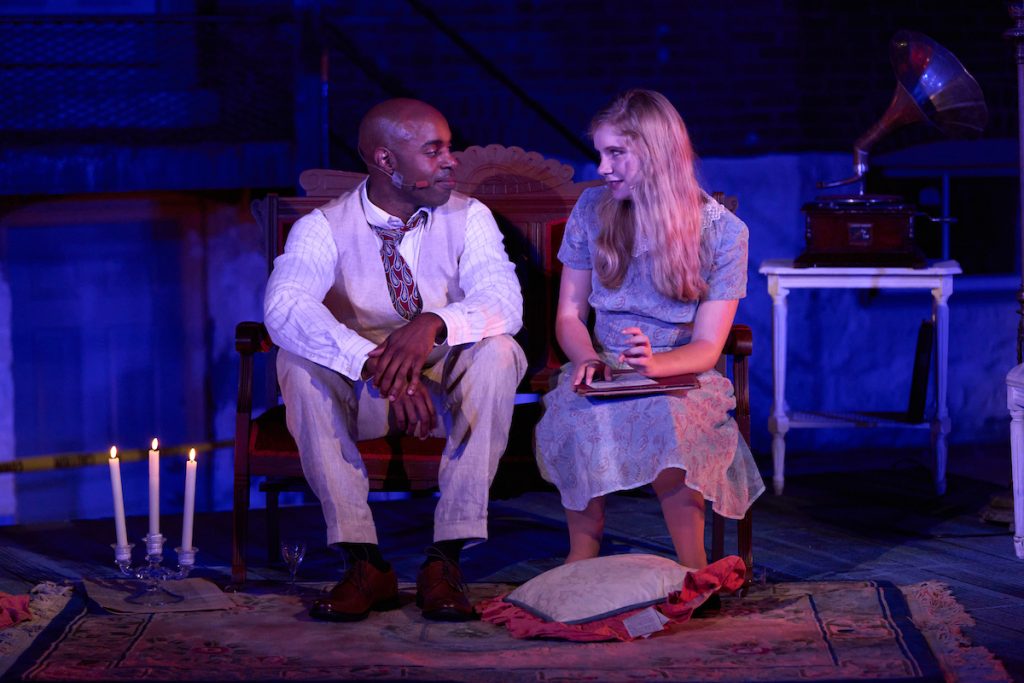
Crump said acting with Thomas is “a master class,” because he makes “bold choices, good choices.” She described him as a “generous and talented actor.”
Elizabeth Teeter. who played Laura in “The Glass Menagerie,” said she agreed with Crump completely. She participated in an interview along with Thomas, Crump and director Brian Hohlfeld regarding TWF St. Louis on the PopLifeSTL.com Presents…podcast on Aug. 14.
“I do look at these as two separate characters,” Thomas said. “Obviously, John Guare took some liberties, and so many things are open to interpretation.”
Chauncy said the perspective of the one-act was fascinating. “I’m either bending the truth, or avoiding the truth,” he said.
As for being part of this ensemble, he described the cast as “absolutely amazing.”
“The other three actors started rehearsal on August 2, while I started on August 9, and we were in tech on the 12th, so I had to figure out what was going on at a faster rate than ever before. On my first day of rehearsal, we didn’t even do a reading of the whole play. We started with Act 2, and after listening to the other actors for the six pages before my entrance, I immediately understood what story we were telling, the tone, the pace, and where I fit into the narrative. These three actors are so vibrant, in-the-moment, and honest, that they do much of the work for me. I don’t have to ‘act’ with them; I can simply exist,” he said.
Besides Teeter as Laura, Brenda Currin plays Amanda and Bradley James Tejeda plays Tom.
Working where Tennessee Williams lived as a boy has been a special experience as well.
“In terms of performing, rehearsing, and living — not the same unit, but the same building — in the apartment where Williams lived, it’s incredibly surreal,” he said.
“To quote Jim, ‘I’m usually pretty good at expressing things, but–this is something I don’t know how to say!’ When Carrie Houk (TWF Artistic Director) called me to offer me the role and explain the production, I was in such disbelief that I didn’t tell anyone about the production for weeks. It seemed unfathomable,” he said.
“All I can say is this production feels magical. I took my first acting class as a sophomore at Washington University, and, that year, Henry Schvey, chair of the theatre department, was directing ‘The Glass Menagerie.’ I was a member of the backstage crew, which was my first experience with a mainstage production, and in many ways my introduction to theatre. And now, 17 years later, I’m performing in the play, at Williams’ home, and the opening night gift my director Brian Hohlfeld gave me is Henry Schvey’s new book about Tennessee Williams. How is this my life?” he said.
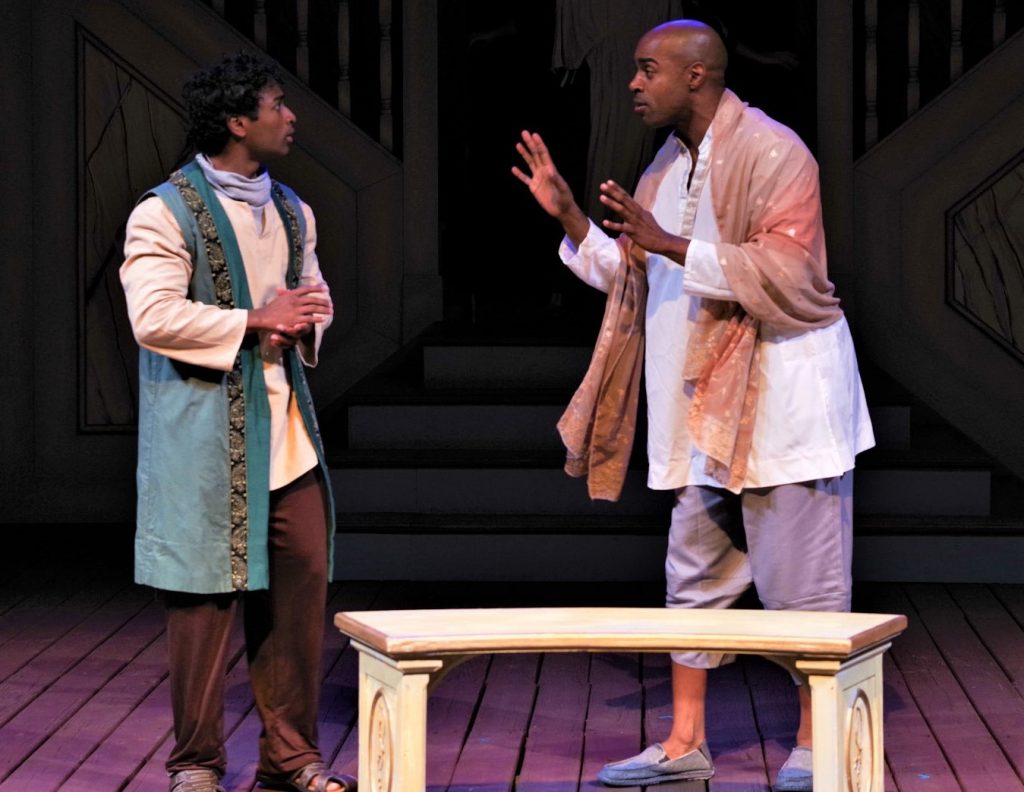
For his second year at the Illinois Shakespeare Festival, he played Camillo and four small roles in “The Winter’s Tale” and Angelo in “Measure for Measure.”
Afterwards, the festival inducted him into the 2021 Actor Honor Roll.
“Chauncy Thomas is a wonderful addition to our Illinois Shakespeare Festival Actor Honor Roll, He creates rich, nuanced characters that are accessible yet complex. Chauncy is a skilled professional who also is the consummate company member: supportive, positive, and kind. It is a pleasure to welcome him to the honor roll,” said ISF Artistic Director John C. Stark.
In 2017, to celebrate the ISF 40th anniversary, they unveiled “40 Years/40 Actors,” a media display, to recognize “the passion, skill, and talent of select festival performers from the past four decades,” and continues with the annual Actor Honor Roll.
“I’m truly touched and honored by this recognition. This theatre means so much to me! I’ve met some of the loveliest people I could ever hope to meet, it’s the closest professional theatre to my childhood home (it’s an amazing blessing to have my mother in the audience five times in one season,” Thomas said.
“It’s been instrumental in my development as a classical actor, and it’s also been the setting or overlapped with some of the biggest emotional highs and lows of my life. When at its best, a theatre is a family, and I’m thrilled to be the newest member,” he said.
‘Take Ten’ Questions and Answers:
1. Why did you choose your profession/pursue the arts?
“Originally, I was so fascinated about how theatre was an exploration of myself. I’m now intrigued by the power of storytelling, the interpersonal connections I make with other artists, and the exploration of the human spirit.”
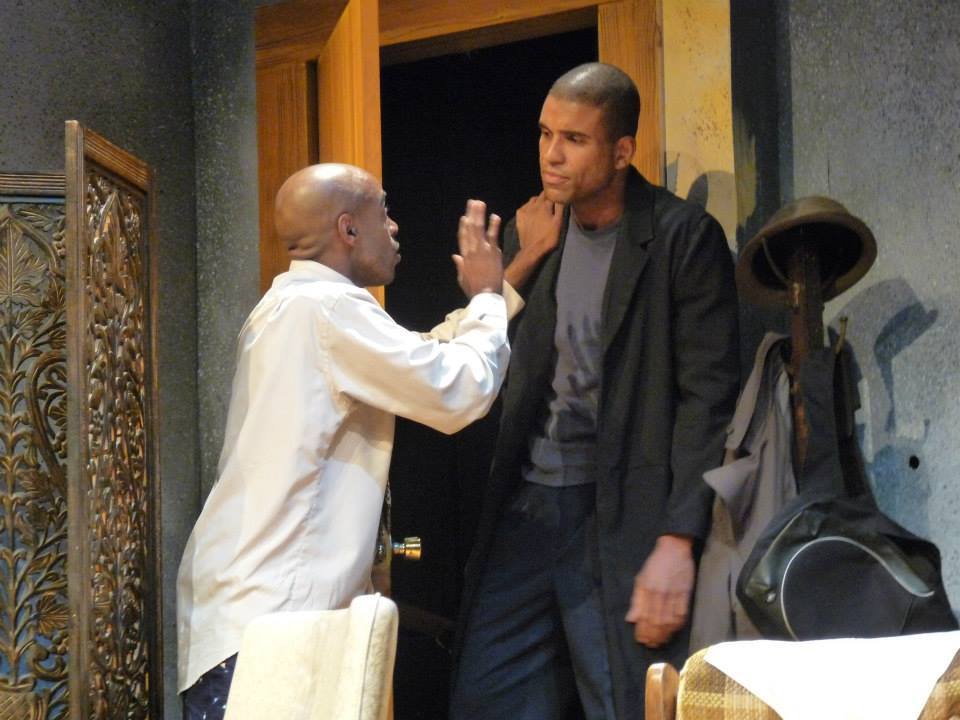
2. How would your friends describe you?
“I took some direct quotes: ‘Funny, witty, smart, creative, thoughtful, organized and an amazing friend.’
“Weird.”
“They wouldn’t.”
“Strangely intellectual and precious for a man with this many muscles.”
“Very very very intentional.”
“A chill control freak with unlikely interests.”
“Loyal, brilliant, hilarious, thoughtful, deeply introspective, principled, all around awesome.”
3. How do you like to spend your spare time?
“I spend as much time with my friends as I possibly can.”
4.What is your current obsession?
“I’m so late, but the ‘Avatar: The Last Airbender.’”
5.What would people be surprised to find out about you?
“I’m ludicrously goofy.”
6. Can you share one of your most defining moments in life?
“In my early teenage years, I was very depressed and often had suicidal thoughts. No one could tell, because from the outside I seemed as if I was thriving. I was gay, in the closet and had plenty of friends, but no close ones. I was in a particularly bad place one day when I was 14 and called one of my acquaintances to ask if we could hang out. Twenty years later, I was best man at his wedding. I’m a person who struggles with feeling I may be a burden to someone, so the act of reaching out to the person who is now my oldest childhood friend was the first time I realized I was allowed to ask for emotional help when I needed it.”
7. Who do you admire most?
“My mom. She’s elegant, hilarious, benevolent, poised, and tough as nails.”
8. What is at the top of on your bucket list?
“Acting in a play I’ve written.”
9. What is your favorite thing to do in St. Louis?
“City Museum.”
10. What’s next?
“I don’t know if I’m allowed to talk about that, yet. But the next play on my schedule is in St. Louis in 2022.”

More Information on Chauncy Thomas:
Age: 36
Birthplace: Peoria, Illinois
Current location: New York City
Family: 2 full brothers, 2 half-brothers, and 2 step-siblings
Education: BAs in Psychology and Drama from Washington University
Day job: Currently a math tutor. In a non-Covid-19 world add catering waiter, chess tutor, and I occasionally portrayed historical leaders for executive leadership trainings for Fortune 500 companies.
First job: House painter
First role: A guard in my high school’s production of “Cinderella.” First professional role was Father Ant in “The Ant and the Grasshopper” for Imaginary Theatre Company.
Favorite roles/plays: Booth in “Topdog/Underdog,” Walter Lee Younger in “A Raisin in the Sun”
Dream role/play: Belize in “Angels in America”.
Awards/Honors/Achievements: One Kevin Kline Award nomination and two St Louis Theater Circle Award nominations
Favorite quote/words to live by: “Leave everyone better than you find them.”
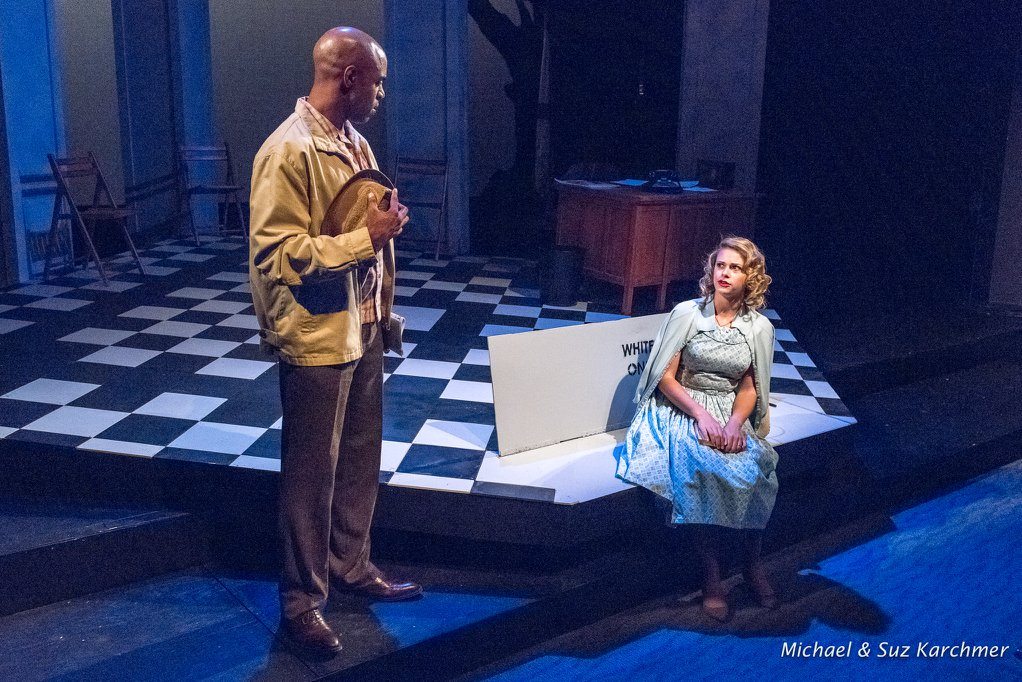
A song that makes you happy: “Groove Is in the Heart” by Deee-Lite
To listen to the PopLifeSTL.com Presents…Podcast about the Tennessee Williams Festival, visit: https://soundcloud.com/lynn-zipfel-venhaus/poplifestlcom-presents-august-14th-2021?fbclid=IwAR3lA4F4DCuAk67je9tNrFsb36G1fhaS6RFcZmOkWI0Lx6zQnvPyrCUg0jk
For more information on the Tennessee Williams Festival, visit https://www.twstl.org/
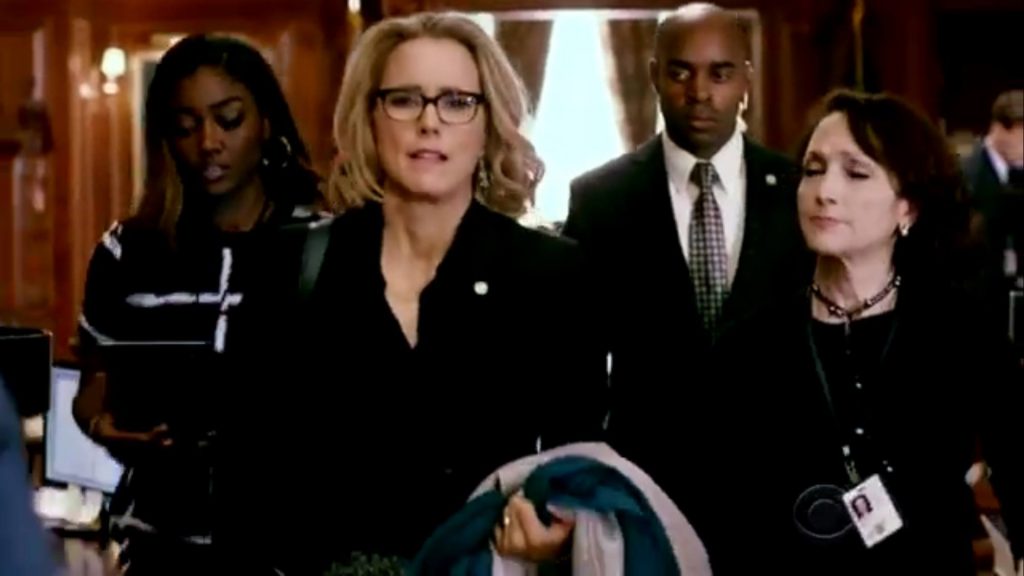
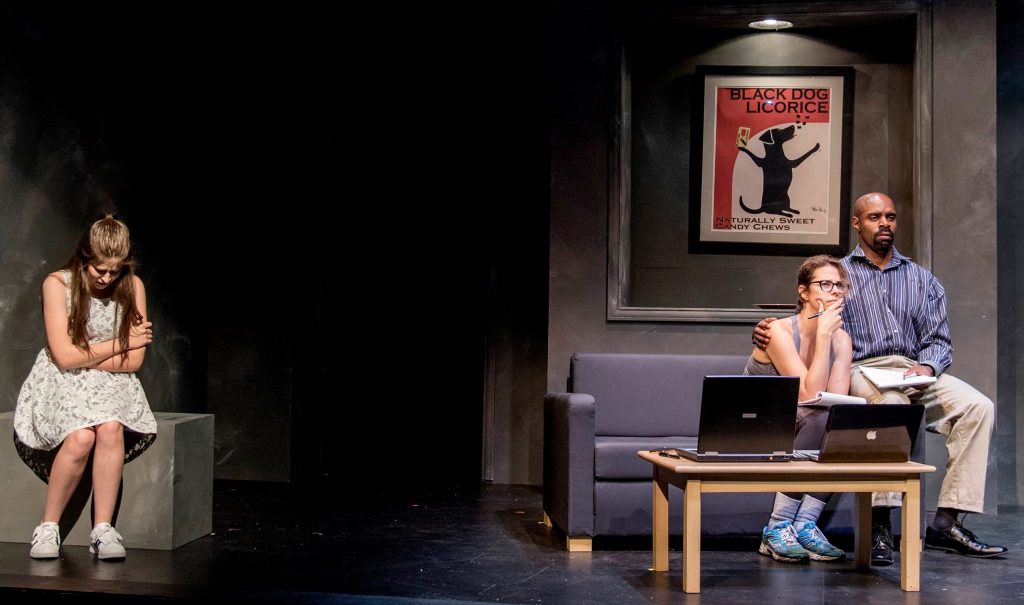
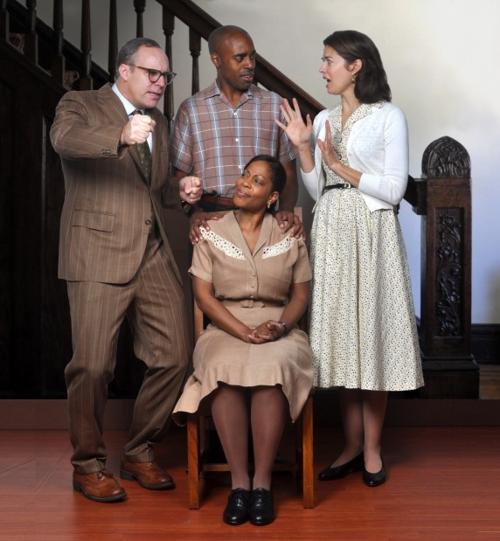

Lynn (Zipfel) Venhaus has had a continuous byline in St. Louis metro region publications since 1978. She writes features and news for Belleville News-Democrat and contributes to St. Louis magazine and other publications.
She is a Rotten Tomatoes-approved film critic, currently reviews films for Webster-Kirkwood Times and KTRS Radio, covers entertainment for PopLifeSTL.com and co-hosts podcast PopLifeSTL.com…Presents.
She is a member of Critics Choice Association, where she serves on the women’s and marketing committees; Alliance of Women Film Journalists; and on the board of the St. Louis Film Critics Association. She is a founding and board member of the St. Louis Theater Circle.
She is retired from teaching journalism/media as an adjunct college instructor.

